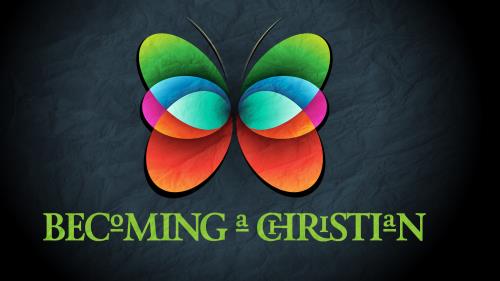-
Is There Direct Evidence That Proves The Historicity Of Jesus?
Contributed by Dr. Craig Nelson on Nov 19, 2024 (message contributor)
Summary: You may not like the answer....
You may not like the answer, but it is - NO! There is no direct empirical evidence (i.e., primary or reliable secondary sources) or absolute proof that Jesus existed. Unfortunately, to the chagrin of atheists and agnostics, there is no audio or video evidence of any person alive today who was there to see if Jesus existed, just as that same type of evidence doesn't exist for any historical figure throughout modern history.
The question concerning the existence of Jesus didn't start until a few hundred years after His death. There is existing document support that proves twenty to forty years after the time Jesus was said to have lived and died, a large following of people reportedly believed that He existed, as well as secular writers within 60 to 120 years after His death. It must be noted that ancient societies were mostly illiterate, and keeping historical records wasn't as important as it is today. It is also essential to recognize that in AD 70, the Romans invaded and destroyed Jerusalem and most of Israel, slaughtering its inhabitants, some of which could have been eyewitnesses of Jesus, and burning entire cities to the ground, which could have destroyed much evidence of Jesus' existence.
Some skeptics say that the titles "Christ" and "Christian" and even the name "Jesus Christ" did not appear before the Fourth Century, and any claim that the name "Jesus" was used before the Fourth Century is, at bes,t spurious and specious.
The facts are that the earliest texts of the Bible never spelled out 'Jesus Christ' and used abbreviations, like 'I's X's, or 'Ise.' Jesus' name was not 'Jesus Christ.' The word 'Christ' (Gk: 'Christos') refers to His position, and the name 'Jesus' was widespread and is a transliteration of the Hebrew word 'Yehoshua' and the Greek word 'Iésous,' which means 'anointed one/Lord" in Hebrew.
Other than it is used two times in the New Testament by non-believers and once by a Believer, the term Christian/Christianity (Gk: 'Christianos') means "follower of Christ" and was first recorded in AD 100 by Ignatius of the Church of Antioch, which was founded between AD 35-50. The term originally came from non-believers/heathens who used it as a derogatory term (i.e., chrestians) to refer to the group of people who followed the Apostle's teaching about Jesus they were persecuting. The letter 'e' was changed to an 'i' around AD 300 to separate it from some of the pagan religions around at the time. The persecution didn't end until around AD 340 to 350.
Christianity has been accused of being a personality cult, but it is hard to start one and sustain it on someone who didn't exist, nor can people explain the sudden emergence of Christianity. At that point in history, Jesus was said to have risen from the dead.
THE HISTORICITY OF THE NEW TESTAMENT
The religion of Christianity is the most significant evidence Jesus existed. The most reliable ancient document is the Bible, specifically the New Testament, which includes numerous biographical and eyewitness testimonial accounts of the life of Jesus in the form of detailed letters to the early churches, which represent extemporaneous evidence. Jesus was also known as a historical person by non-Christian writers eighty to one hundred years after His death.
The Bible today is the same as what was originally written. It has been translated many times in a one-step process from the original languages into multiple languages throughout history, but it has never been rewritten.
The New Testament was written between AD 40-100, and there are approximately 5,700 copies of the Greek manuscripts made very close to the time of the originals, with most being 200 to 300 years later and some less than 100 years later. The Scribes who copied the original manuscripts were meticulous and made sure it perfectly matched. The writings of the New Testament are preserved better than any other ancient manuscript. All of them agree with each other with 99.5% accuracy.
Originals or autographs aren't needed because we can construct the whole Bible through different potteries and lectionaries, such as the Dead Sea Scrolls in 1947, which contained the text of the Old Testament that was 1000 years older than the previous one, with just a few negligible discrepancies. The .5% variation would include textual misspellings or minor word alterations. There are also over 19,000 copies in the Syriac, Latin, Coptic, and Aramaic languages, bringing the total supporting New Testament manuscript purity to over 24,000 copies, which is more than any other writing in history that authenticates the historical presence of Jesus. He is mentioned many times in legal documents from that century. His birth and death are both documented and mentioned by Jewish and Roman Historians decades later.
In comparison, there are only ten manuscripts of Caesar's Gallic War and 251 copies of the works of Julius Caesar, the earliest of which is from 950 years after it was written. There are only 109 copies of the Historian Herodotus writings, with the earliest from 1,400 years after he wrote it, yet so-called 'scholars' don't doubt their credibility, integrity, or accuracy.

 Sermon Central
Sermon Central



